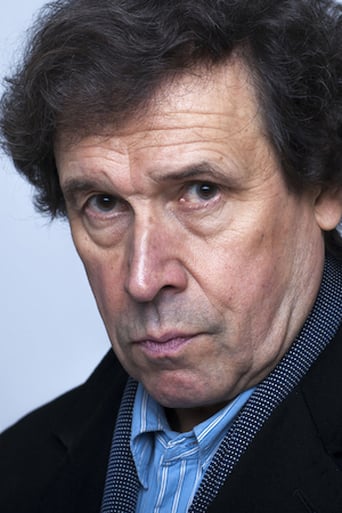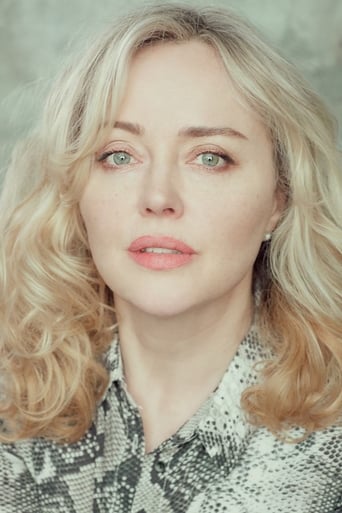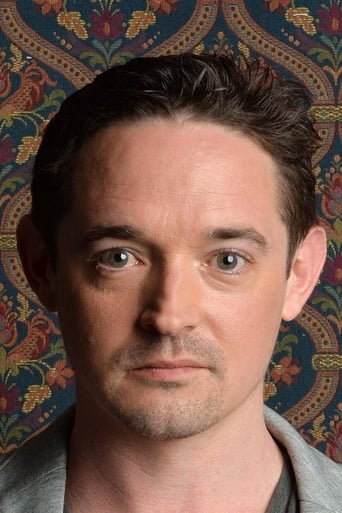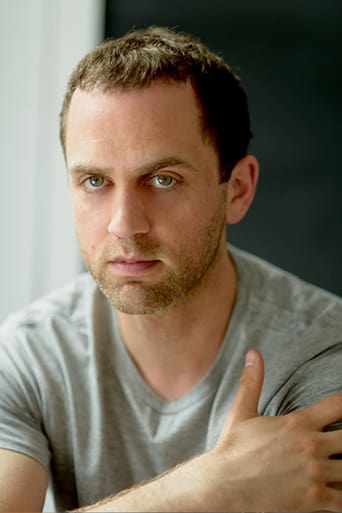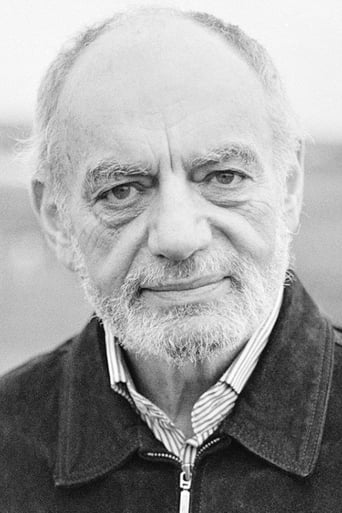Pacionsbo
Absolutely Fantastic
Chirphymium
It's entirely possible that sending the audience out feeling lousy was intentional
Dirtylogy
It's funny, it's tense, it features two great performances from two actors and the director expertly creates a web of odd tension where you actually don't know what is happening for the majority of the run time.
Juana
what a terribly boring film. I'm sorry but this is absolutely not deserving of best picture and will be forgotten quickly. Entertaining and engaging cinema? No. Nothing performances with flat faces and mistaking silence for subtlety.
mike rice
Some of Leo Bloom may as well be in Gaelic, I simply can't divine what he's saying. I'm looking at this on a DVD with only Spanish subtitles. Ulysses is difficult enough reading. Having to try and divine the all important voice-over without captions is crazy. But I notice many artsy fartsy British Isles stuff comes to the US without subtitles. The idea is there's such a small market in the states for such DVDs that spending money on subtitles just whittles the already small profit, smaller.The film has inspired me to go back and tackle the book again. I haven't read a line of it in 40 years. At a minimum I won't leave the book until I've read the entire Molly Bloom soliloquy. Its what Ulysses journeyed home to hear.
Cosmoeticadotcom
Bloom is an Irish film of the James Joyce novel Ulysses by director Sean Walsh. Let me be up front- I think Ulysses is a vastly overrated book, with moments of superbness and many more moments of wretchedness. It was Joyce, Woolf, and their ilk that started a good deal of art down the road to narcissistic hermeticism. That all said, while the film Bloom is not a great film, in and of itself, it is a good film, with moments of brilliance, and does a far better job at explicating the events of the first Bloomsday, June 16th, 1904, than the book ever has, despite what pretentious critics say.Basically, nothing much happens on that day, yet three main characters- a married couple, Leopold (Stephen Rea) and Molly Bloom (Angeline Ball), and an aspiring artist and scholar named Stephen Dedalus (Hugh O'Conor)- protagonist of Joyce's earlier A Portrait Of The Artist As A Young Man. The three perambulate about the world of Dublin on that day, meeting and missing each other on several occasions. Dedalus is trammeled by his own inadequacies, and rebelling against the established order, while the Blooms deal with the slow death of their marriage, precipitated by the untimely death of their son, and aided by Molly's flagrant infidelities. Yet, the book takes these circumstances and subordinates them to the intellect, in the conceit of 'stream of consciousness' writing, which is basically unpunctuated interior dialogue. Of course, the thing about stream of consciousness is that it is really the conceit, not the real way people think, lest punctuation would never have gotten started. Think of how often your thoughts veer and back up, U-turn and screech to a halt. The mind is certainly not like a river, but more like a potholed city street.The film, however, does not suffer from these limitations. The visual image can work on multiple levels with far more immediacy than the word, so the 'day' of the book can be easily condensed. Some Joyceans will complain that the film takes things out of order, and mixes many of the chapters together, yet a) this is a film, not a book, and b) that is akin to deriding those who deride Joyce's approach in the book (regardless of whether or not he succeeds- I vote nay), as well as being the height of hypocrisy. There are marvelous images, and truly the cinematography is the best thing in the film. Rea is also great as Leopold Bloom, while ball and O'Conor also have moments of brilliance- including Molly Bloom's closing soliloquy- the last chapter in the book- which the filmmaker wisely opens and closes the film with, so that Molly is indelibly stamped in the viewer's mind while most of the rest of the film explores Leopold and Dedalus…. Almost all of the flaws in the film are carryover flaws from the novel. Film, in fact, would seem to be a medium that Joyce was born to indulge in. Had he been born thirty or so years later I think he may have become the first great screenwriter, and may never have dabbled in novels. Film is far closer to poetry than prose, and Joyce's prose certainly is among the closest published skirts near poetry. Instead of 'not doing justice' to the book the film really makes the book far more relevant to readers- hardcore or casual. Its only flaws, outside of the book's, is that it could have been a bit more daring. I mean, if Ulysses is rent of nudity, just how avant garde can it be?Overall, I recommend this film on its own right, and as sort of a Cliff's Notes to the book, especially considering the excellent director's commentary. But, it's a so-so book to begin with, so take the former notation in that light. Yes?
Cliff Hanley
It's tempting to describe this film by listing all the things it is not. The earlier black and white version, by Joseph Strick in the Summer of Love 1967, starring Milo O'Shea, was too steamy for Ireland and Glasgow, where it was banned, but it was quite sedate and circumspect even by the mores of the time. There has been an excellent serial on BBC Radio, where good use was made of echo/reverb and stereo in depicting the various voices of guilt, regret, lust, fantasy, stream-of-consciousness. In a sense, Michael Winterbottom got closer to the show-off spirit of Joyce in 'Cock and Bull Story', but this production is its own movie. It certainly gets back to the 'cut and paste' feel of the book, and looks every bit as lubricious and smelly as it aught to. Dublin looks dark and damp as it is on the written page, albeit with a touch of filmier romance. The scenes of pure mad fantasy, on the other hand, are either under hardedged sit-com lighting or bathed in a 'Ridley Scott' fog. Most of the dialogue is slightly stagey - or it has the kind of distanced feel associated with post-synching, but only once does this mannerism jarr, when Dedalus (Hugh O'Connor) is spouting his opinions on life and art; so 'rehearsed' and declamatory that it could almost be seen as a deliberate nod to Joyce's category-jumping. Stephen Rea has just the kind of hang-dog look of regret, guilt and ineptitude you can imagine in Leopold Bloom; Angelina Ball as Molly is permanently redolent of warm bed. A neat trick with the structure was to begin with Molly's soliloquy,but otherwise, the overall framework follows the book; if we had been deprived of That Ending, who knows, riots could have broken out. As it is, the acceptance of human folly and the celebration of cerebral grandiosity in vile bodies forms a happy cloud round the exit. One to see again. CLIFF HANLEY
Jamie O'Halleron (lynchboy2001)
Bloom (or Bl.,m if you're to go by the opening credits) had the potential to follow in the footsteps of what is regarded as the greatest written novel of the 20th century, the Joyce classic Ulysses, an epic ramble around Dublin. What we have here though is merely a supplement to the novel, an illustrated guide to the main parts of the book. Anyone wishing to enjoy this purely as a cinematic event will be disappointed, as the film seems to be almost completely inaccessible to someone not versed in the book. The major plot points (and there are numerous) are lightly touched on (eg Bloom's 'Jewishness') and then we get a plethora of narration taken verbatum from the book over scene after scene on beaches! Obviously the size of the budget limited this film greatly, but it seems the one crucial element missing from the book was the actual walking itself. Since the book focuses on the main characters walking around Dublin, you would expect some in the film, but given the changing face of Dublin 100 years in the future, the film was severely restricted, much to it's detriment. The film had potential yes, but perhaps too much was bitten off, & the pretentious ending, coupled with manipulative a score ruins even the ideas trying to be expressed by this too-faithful adaptation.
